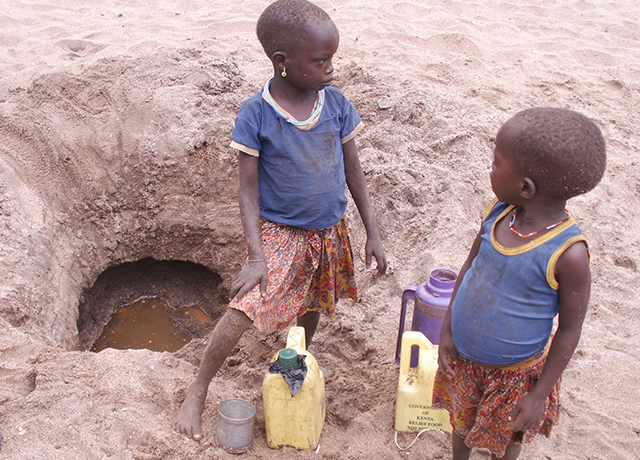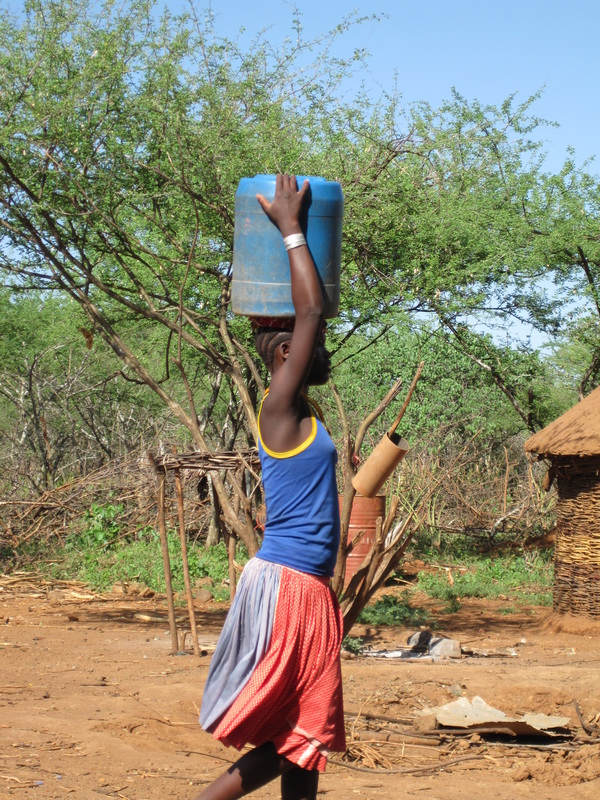Public Health: Clean Water
|
In the Pokot area of Kenya, in sub-Saharan Africa, the traditional water source during the long dry season is from hand dug holes down into the dry river beds. The water is often contaminated with bacteria and fecal matter. Children in Pokot tribe often die of diarrhea from drinking dirty water. Other water related diseases like dysentery, cholera, and typhoid has contributed to a very high mortality rate in children in the Pokot tribe. As mentioned on the malaria section of this site, only 1 out of 3 children in the Pokot tribe live to see their 5th birthday.
Finding water is also difficult especially during the dry season. Women walk miles to find water while men spend most of their time tending for the cows, goats, sheep and camels. Because Pokot people are nomadic (meaning they move from place to place in search of food and pasture for themselves and their animals). Women often walk distances over 20 miles (or about 30 kilometers) both ways, looking for water. |
|
The water holes get deeper as dry season progresses. It is not uncommon to find a hole taking as many as six women standing on ledges along the sides of the hole and handing the water up, hand over hand to the person above them. Unfortunately, cave-ins and falls are common, therefore making this a very dangerous process. As is often the case, the amount of water barely provides for the cattle and human drinking needs. Drilled Wells with hand pumps have proven a clean alternative.
Health Initiatives Mission is committed to seeking sponsors and partners to purchase drilling equipment in order to provide a for a long term solution for the water problem affecting the Pokot tribe of Kenya. |
Back to: Home



